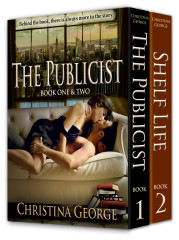I had drinks with some industry people recently (a rare occurrence, and for obvious reasons if you read this blog) and some VERY interesting information regarding the New York Times best seller list was revealed by someone who works for Amazon Publishing. You’ve got to love what a little alcohol can do…
Essentially what she shared with us is that no eBook published by Amazon is allowed to make the NYT best seller list. Plain and simple, they’ve been backlisted. Not because of any particular incident or issue, but most likely because Amazon has become such a force in the publishing industry the NYT in turn has become anxious about the powerhouse’s ability to potentially manipulate the numbers.
We already know the main lists, for print books, can be tinkered with as long as you can organize enough unique purchases – the Wall Street Journal already reported on this – but that’s still only relevant to titles being considered for the slots.
Whether or not Amazon is really capable of manipulating major best seller lists for eBooks is besides the point really, because the NYT and other major print lists is are based on chain store recommendations and since Barnes & Noble doesn’t carry an Amazon title, they’re really SOL anyway, but what really got me thinking was whether or not best seller lists in general will become totally obsolete if more and more restrictions are brought to light in an effort to preserve the “old school” ways of publishing?
Institutions like the New York Times have a lot of clout, and whether its “fair” or not, it would take a lot to tarnish that reputation beyond repair. Imagining their best seller list becoming a total joke is almost incomprehensible.
But it’s worth considering who it would affect, and how much.
I imagine it would take some sort of divine intervention to completely wipe the desire to make the NYT best seller list from authors’ minds. Every single client I’ve worked with has wanted to make the list. Hopes and dreams are both made and dashed on a regular basis. Okay, mostly dashed, but you get my point. It’s like losing your virginity; it may or may not have been a pleasant experience but it changed your life, even in a small way, forever.
On the other hand you have the media and the general public, both of which can be advantageously disinterested or intensely prejudiced in situations like this. If the media, and therefore the general public, decide to ignore the fact that these lists have so many restrictions, then really, nothing changes. However, there’s always the possibility that they will care, and if that’s the case, will making the list still really matter? Will that accolade draw the continuous stream of buyers it generally does today?
And if ‘the lists’ no longer carry the weight they used to, what will replace them? How will book clubs know what to pick? What will publishers put on the covers to capture the all important “impulse” purchase in retail stores and in airports?
Then, let’s consider this – it would seem that many in the industry have made it tough for Amazon to succeed. By locking them out of bookstores, by giving them no opportunity to hit the NYT eBook list and other things related to the success or failure of their books. What happens if they succeed despite the efforts to thwart their very existence? What does that say of the Amazon Publishing business model? Essentially by eliminating the things that at one point used to make or break a book, Amazon is being forced to find other ways, to forge other relationships. Not that dissimilar from 90% of the authors out there anyway.
For many, the NYT isn’t even a possibility and bookstores are further away still. Yet they succeed in spite of this, or perhaps because of it.
What it really comes down to is this – perhaps the traditional publishing model that so many of us have come to rely on is finally passe. Big publishing houses are competing with Amazon and self-publishing companies for titles, which means authors backed by big names are actually competing for sales with self-published authors. Ten years ago no one would have believed this possible, hell, five years ago no one took the rise in self-publishing seriously, and now look where we are.
Being on the traditional side this shift just fascinates me, the issue of job security aside…
If you’re an author reading this I’d love to hear your take, and please share with your colleagues. Are bestseller lists really that important to you anymore? Not that you’d turn down a call from the NYT, but do you put much faith in snagging one of those exclusive spots or do you focus your blood, sweat, tears and budget elsewhere? Are you self-published after trying to go the traditional route? If so, what was your experience?














